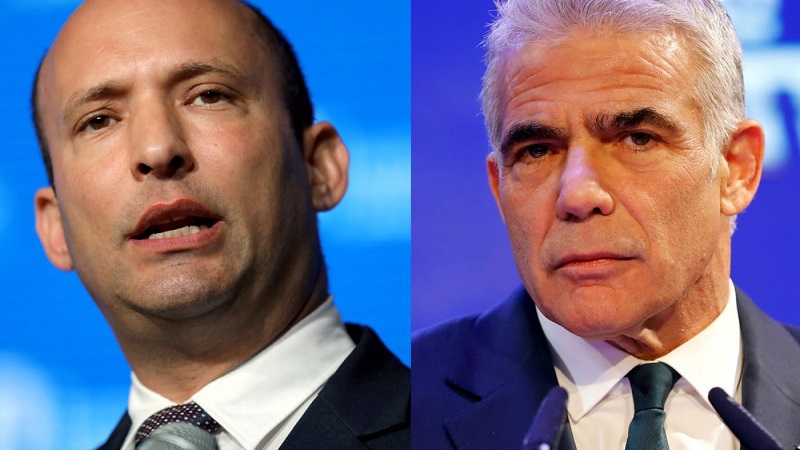Israel’s opposition parties reached an agreement on Wednesday to form a new coalition government that would bring an end to Prime Minister Benjamin Netanyahu’s 12-years in power.
Yair Lapid, leader of the centrist Yesh Atid party, informed President Reuven Rivlin that a unity coalition of eight parties had been formed, including some unlikely political allies, such as the United Arab List (UAL) and Yisrael Beiteinu.
Under the coalition agreement, the head of the right-wing Yamina party, Naftali Bennett, would serve as prime minister for two years before handing the position over to Lapid.
Lapid’s announcement does not immediately end Netanyahu’s grip on power, as lawmakers will need to vote on the deal, which is expected next week.
Until then, Netanyahu is expected to continue his attempts to get lawmakers to defect so Lapid does not have a 61-seat majority in the 120-seat Knesset.
Lapid had been tasked with forming the next governing coalition after Netanyahu failed to put together his own coalition following Israel’s fourth inconclusive election in less than two years.
“This government will work for all the citizens of Israel, those that voted for it and those that didn’t. It will do everything to unite Israeli society,” Lapid said in a statement on Twitter, shortly before a midnight deadline.
Rivlin congratulated Lapid on the announcement, writing on Twitter: “I congratulate you @yairlapid and the heads of the Knesset caucuses on your agreement to form a government. We will expect the Knesset to be convened as soon as possible for the government to be ratified as the law requires.”
Netanyahu’s camp had been working aggressively to undo Lapid’s fragile new coalition, which will only command a razor-thin majority in parliament, by turning lawmakers over to their side.
The coalition comprises a patchwork of small and medium parties from across the political spectrum, including for the first time in Israel’s history a party that represents Palestinian citizens of Israel. Palestinians make up around 20 percent of Israel’s population.
Arab List crucial
The UAL’s Mansour Abbas was crucial in creating the majority, but his support for a coalition that is set to Bennett in the premiership is controversial among Palestinians.
Abbas said he only signed on to the deal after “critical agreements on various issues that serve the interests of Arab society” were reached, Haaretz quoted him as saying.
“We want a government to be formed that will serve all the citizens of the country, including the Arab citizens, so we made a difficult decision,” he said.
“There are many disagreements and we understand that, but we must reach an overall agreement.”
Abbas said education, welfare, employment, economic development, planning, construction, and crime and violence, were among the issues discussed.
“This is the first time that an Arab party is a partner in a government. We hope that the whole process will be successful and eventually a government will be formed after four elections,” Abbas noted.
Wednesday’s announcement adds to the woes of Netanyahu, who is on trial over charges of fraud, bribery and breach of trust while in office – accusations he denies.
Netanyahu’s rivals had cited his corruption case as a main reason why Israel needs a new leader, arguing that he might use a new term to legislate immunity to shield himself.
Source: Middle East Eye






 WhatsApp us
WhatsApp us 

